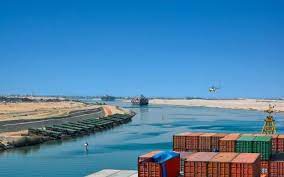Egypt announced on Tuesday that it is going to hike vessel transit fees, for oil-laden tankers that pass via the Suez Canal, one of the world’s most crucial trade channels. On its official website, the Suez Canal Authority (SCA) mentioned that it will add 15% to the transit fees for petroleum-, oil-, and products-laden tankers. This increase is up from the existing 5%.

According to the SCA, the increases will be effective from 1 May, and could later be called off or revised, per changes in worldwide shipping. The new increase is an amendment to surcharge hikes levied on vessels that pass through the waterway in March.
The SCA also added a surcharge fees for liquid bulk tankers, including chemical tankers. For them, the hike from 10% will go up to 20%. On the other hand, ballast and laden dry bulk carriers will encounter an increase of 10%.
Vessels loaded with general cargo, vehicles, heavy-lift vessels, and multipurpose vessels will face a 14% increase from the existing 7%. Ballast oil and crude oil products tankers passing via the Suez Canal are needed to provide a surcharge of 5% of the usual transit fees.
Read Also: Russian Shipping Firm Sovcomflot In Choppier Waters After UK Slaps On Sanctions
Canal authorities are striving to deepen and widen the waterway’s southern part, where a cargo vessel ran aground in March 2021, blocking it for almost a week. The incident had massively disrupted worldwide shipment.
Nearly 10% of worldwide trade, including about 7% of the world’s oil, flows via the Suez Canal, which links the Red Sea to the Mediterranean Sea. In Egypt, the canal — inaugurated in 1869 — is a source of foreign currency and national pride.
Authorities noted that 20,649 vessels had transited via the canal in 2021, a 10% increase from 2020 that observed 18,830 vessels. The annual revenue of the Suez Canal hit $6.3 billion last year, the maximum in its history.
Kindly like us on Facebook















